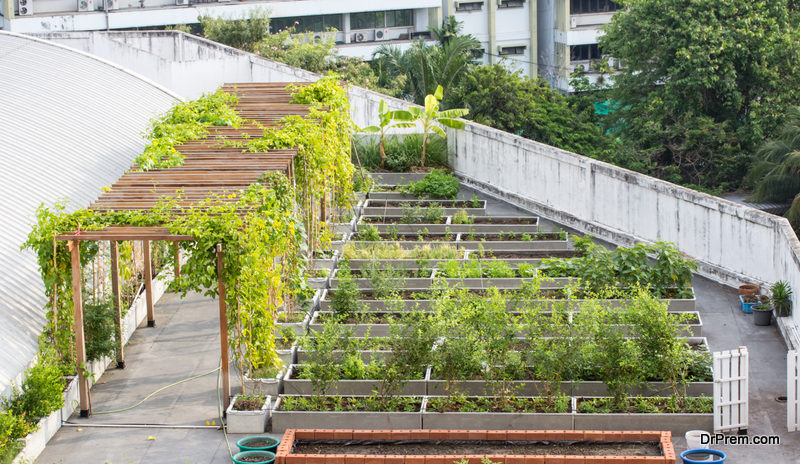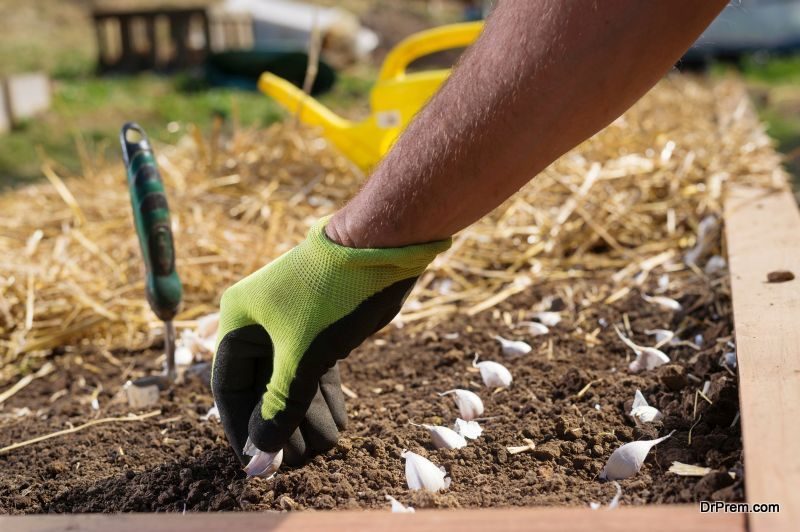Have you ever grown your own vegetables, or eaten food that was grown fresh in someone’s backyard? Whatever your experience with gardening in the past, you should definitely consider starting a vegetable garden this season.
There’s a wide range of options available to you, so don’t be intimidated. If you have the space and the budget, you can build a shed and till a few acres to accommodate your crops. If you live in a cramped apartment, you might still be able to care for a potted tomato plant on your balcony or the roof of your building. Either way, you’ll be able to enjoy the benefits of raising your own vegetables.
The Benefits of Vegetable Gardening
 These are just a few of the benefits you’ll get by tending your own vegetable garden:
These are just a few of the benefits you’ll get by tending your own vegetable garden:
- Fresh vegetables. This is the most obvious perk; with a vegetable garden, you’ll have access to your own, fresh-grown vegetables. Vegetables are extraordinarily good for your health, and growing them yourself gives you exclusive control over how they develop. This can save you tons of money and incentivize you to eat fresher and healthier.
- Many people find tending to a garden to be a peaceful and mindful exercise. The repetitive, yet focused motions of pulling weeds, tilling soil, and picking vegetables is naturally relaxing, and can reduce your stress.
- Light exercise. Gardening also gives you a chance to lightly exercise. Between digging, tilling soil, planting crops, and watering, you’ll burn lots of calories and get fresh air at the same time.
- Property appeal. Depending on how you approach vegetable gardening, it could easily increase the appeal or value of your property. For example, if you build an attractive raised bed to house your vegetables, you could get more value out of your home—and make the property more attractive to a potential buyer.
- If you manage to grow enough crops and make them attractive enough, you could easily sell them at a local farmer’s market. Depending on what you grow and where you sell them, you could end up making thousands of dollars a year as side income.
Getting Started
 If you’re interested in starting a vegetable garden of your own, these are the steps you can follow:
If you’re interested in starting a vegetable garden of your own, these are the steps you can follow:
- Analyze your space. Be realistic about your property and what kind of space you can work with. Do you have a yard where you could build a raised bed or till and improve the soil? Or do you only have a porch or balcony to work with? How much sunlight do the main areas of your property receive? There’s almost always a way to make it work, but some property types require more effort than others.
- Pick the right plants for the season. It doesn’t take much research to learn the best time to plant each type of vegetable. If it’s late in the season, you may have a narrow range of options to choose from, but if you get started early, you can plan for all your favorite vegetables—and plant them at just the right times. Usually, you’ll have a wide time window to work with (a few months), so you shouldn’t have to worry too much.
- Find seeds (or starter plants). If you’re feeling ambitious, you can plant seeds directly into the soil or start them in small pots. However, if you’re new to vegetable gardening, it might be better to purchase starter plants, which someone else has begun and nurtured through the earliest stages. Either way, be careful when transplanting a small plant into its final destination.
- Plan for pests. Growing a plant is a significant accomplishment, but if you want to enjoy the fruits of your labor, you’ll need to have a plan for how to control pests. Depending on where you live, rabbits and other herbivores might eat your plants before they can flourish, or insects may infest your garden and render it incapable of supporting plant life.
- Water, fertilize, and tend. Beyond that, most of your effort comes down to watering, fertilizing, weeding, and in some cases, trimming and pruning. Moderation is key in all these areas; too much water, too little water, too much fertilizer, and too little fertilizer can all be dangerous to your vegetables.
Don’t be surprised if you lose a few plants during your first or second year of tending a garden. Not everyone is naturally talented at tending to plants, and there’s a significant learning curve in play—especially with many different plants involved. Instead of striving for perfection, enjoy the experience, and take the time to learn from your mistakes. Eventually, you can become a vegetable-raising master in your own right.
Article Submitted By Community Writer




